IEEE CASS-SH Artificial Intelligence for Industry Forum
IEEE CASS-SH Artificial Intelligence for Industry Forum took place on 24 November, in Alibaba’s Shanghai office. The forum is organized by IEEE Circuits and Systems Society (CASS), Alibaba DAMO Academy and Shanghai Jiaotong University. This is the first IEEE CASS-industry outreach event in China. It is an extremely successful event, with more than 137 on-site attendees. 44% of the attendees are from Alibaba, 41% are from the universities, and 15% are from the local industry. There are four outstanding talks and a panel discussion on deep learning and neuromorphic computing.
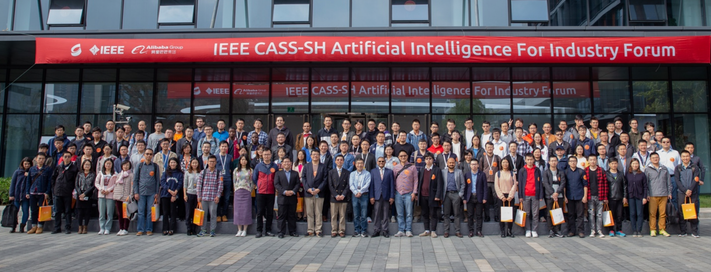
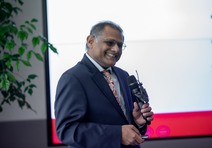
Prof. Keshab K. Parhi (IEEE Fellow, former IEEE CASS BoG member, from the University of Minnesota) gave a talk on "Machine Learning and Deep Learning Systems: Low-Energy VLSI Architectures and Applications." (1) Feature ranking and approximation calculation could significantly reduce the energy consumptions of neuromorphic computing and machine learning systems. (2) Future research areas should consider reducing the energy consumptions of backpropagations in neural network training, distributed systems, and SNN.
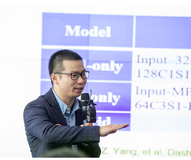
Dr. Lei Deng (from the University of California at Santa Barbara) gave a talk on “Bridging Deep Learning and Neuromorphic Computing with Tianjic Chip.” The Tianjic chip is featured as in the front cover of Nature recently. The chip can implement not only traditional artificial neural networks but also brain-inspired spiking neural networks. By combining the advantages of both kinds of neural networks, the chip can achieve high accuracy and subtle latency when performs real-time multitasks in a real-world environment. More importantly, the chip provides a new research direction of how we can move current AI towards Artificially General Intelligence (AGI).
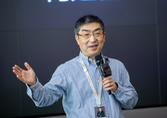
Dr. Xiaoning Qi (Alibaba Group Vice President) gave a talk on “Edge-to-Cloud Innovations for Inclusive AI.” T-Head under the Alibaba DAMO Academy, an initiative to lead technology development and scientific research, aims to provide the chip infrastructure services to customers in this AIoT period. On cloud aspects, T-Head recently announced the AI chip “Hanguang800” which has the state-of-the-art inference performances and will provide powerful computing capabilities to global customers via Alibaba cloud services. On edge aspects, T-head has delivered over 1 billion microprocessor IPs based on the “XuanTie 800” series. Last but not least, a chip design platform “WuJian” provides a comprehensive and integrated solution that includes chip, firmware, software, and developer tools.
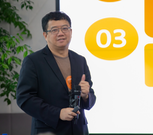
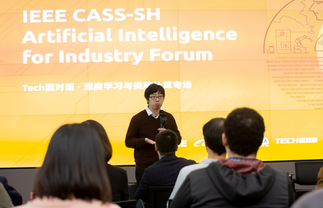
Prof. Arindam (from Nanyang Technological University) in his talk on “Neuromorphic Engineering 2.0: AI for Edge Computing" describes the neuromorphic computing V2.0 from three different aspects: circuits, hardware architecture, and algorithms. He gives two examples to explain the advantages and applications of the neuromorphic computing V2.0: one is a brainmachine interface-based neural decoding for the arm control, and the other one is a neuromorphic electronics-based video processing technology. This technique successfully solves the dilemmas of traditional frame-based- and events based- video processing methods. Hence, there is a significant improvement both from the accuracy and power consumption aspects compare to the other systems. At last, Prof. Arindam indicates that new materials and data security will be the trend, and this timing is a big opportunity for NC V2.0.
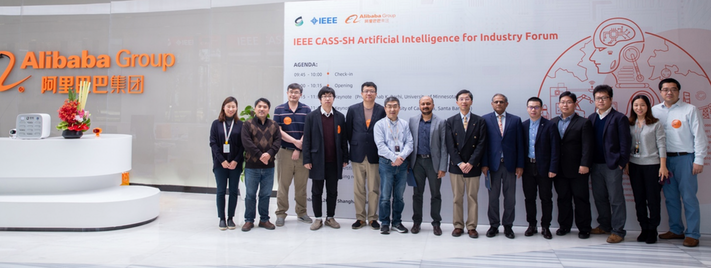
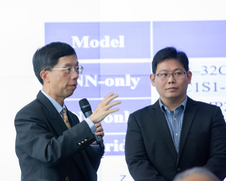
Dr. Yen-Kuang Chen (IEEE Fellow, IEEE CASS BoG member, IEEE CASS VP-TA 2020-2021, Senior Director of Computing Technology Lab of Alibaba DAMO Academy) chaired the panel discussion on “Deep Learning vs Neuromorphic Computing for Artificial Intelligence.” Dr. Chen asked the panelist to predicts whether deep learning or neuromorphic computing will be mainstreaming 5-10 years from now. Prof. Richard Shi (IEEE Fellow, University of Washington) stated that while deep learning is the current mainstream, neuromorphic computing is the future of AI. He strongly believes that the GPU or deep learning acceleration related companies will be dramatically reduced in the next 15 years. New computing architectures will replace the current GPU or deep learning accelerators. Dr. Lei Deng stated that both academy and industries should together define the standard benchmarks, develop software and frameworks, and investigate the killer applications for neuromorphic computing. Prof. Arindam Basu stated that there are already established plenty of matured neuroscience computing mechanisms, which potentially can be transformed into spiking neural network training algorithms. We should fully utilize these kinds of bio-plausible models rather than develop neuromorphic computing until we fully understand the brain computing mechanisms. Dr. Xiaoning Qi stated that although we are far from fully understand how our brains work, we should be open-minded for developing new computing architectures. Believing is seeing. He believes whatever deep learning or neuromorphic computing, there will be big breakthroughs soon.
Yen-Kuang Chen, IEEE CASS VP-TA 2020-2021
___________________
IEEE CASS Call for 2020 Awards Nominations
This message is to notify you that nominations for the annual awards of the IEEE Circuits and Systems Society are now being accepted. Nominations should be submitted online by 15 February 2020.
Please go to http://ieee-cas.org/awards where you will find descriptions of the awards being given in 2020.
Online submissions:
- Society Awards
- Pre-Doctoral Scholarship
- Paper Awards
- Chapter of the Year Awards
- Student Travel Awards
It is very desirable that members who have contributed significantly to the various CAS Society activities highlighted by our awards be recognized. This is our way of showing our appreciation for their accomplishments.
Note: Self-nominations are not allowed for any award other than the Student Travel and Pre-Doctoral Scholarship Awards.
Questions regarding awards and nominations should be sent to the CAS Society Administrator at manager@ieee-cas.org..
Yong Lian, 2020 CAS Awards Committee Chair